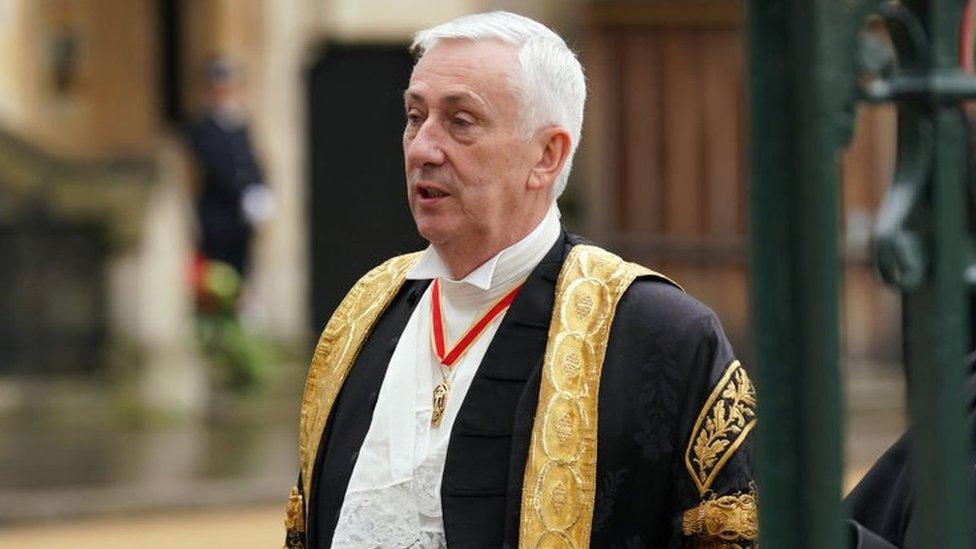Politicians 'make promises and never stick to them'
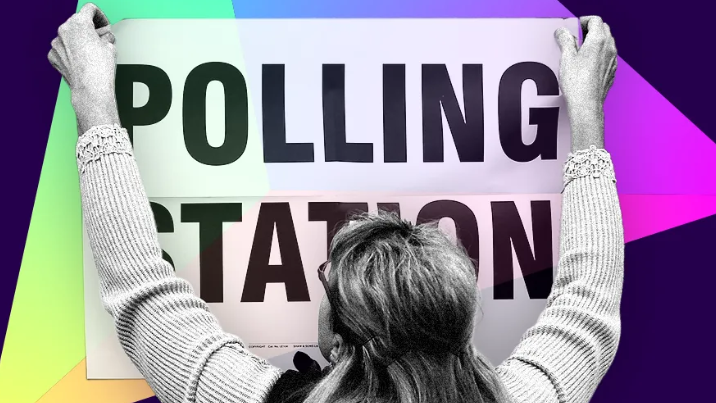
How many people in the north-west of England can be persuaded to head to the polls?
- Published
Politicians are certainly making a lot of noise right now, but is anybody listening to what they have to say?
The level of public engagement in an election campaign is ultimately measured by turnout - the percentage of eligible voters who actually bother to cast their vote.
Across the north-west of England, turnout levels vary enormously.
At one end you've got Westmorland and Lonsdale in South Cumbria. At the last general election in 2019, nearly four in five voters in the constituency put their X in a box.
People there bucked the national trend - not only is it the most northerly seat held by the Liberal Democrats, but it was one of very few rural areas which voted Remain in the 2016 Brexit referendum.
Former Lib Dem leader Tim Farron was elected as its MP in 2005. He lives in Milnthorpe, which is now part of a revised Morecambe and Lunesdale constituency that was won by the Conservatives in 2019.
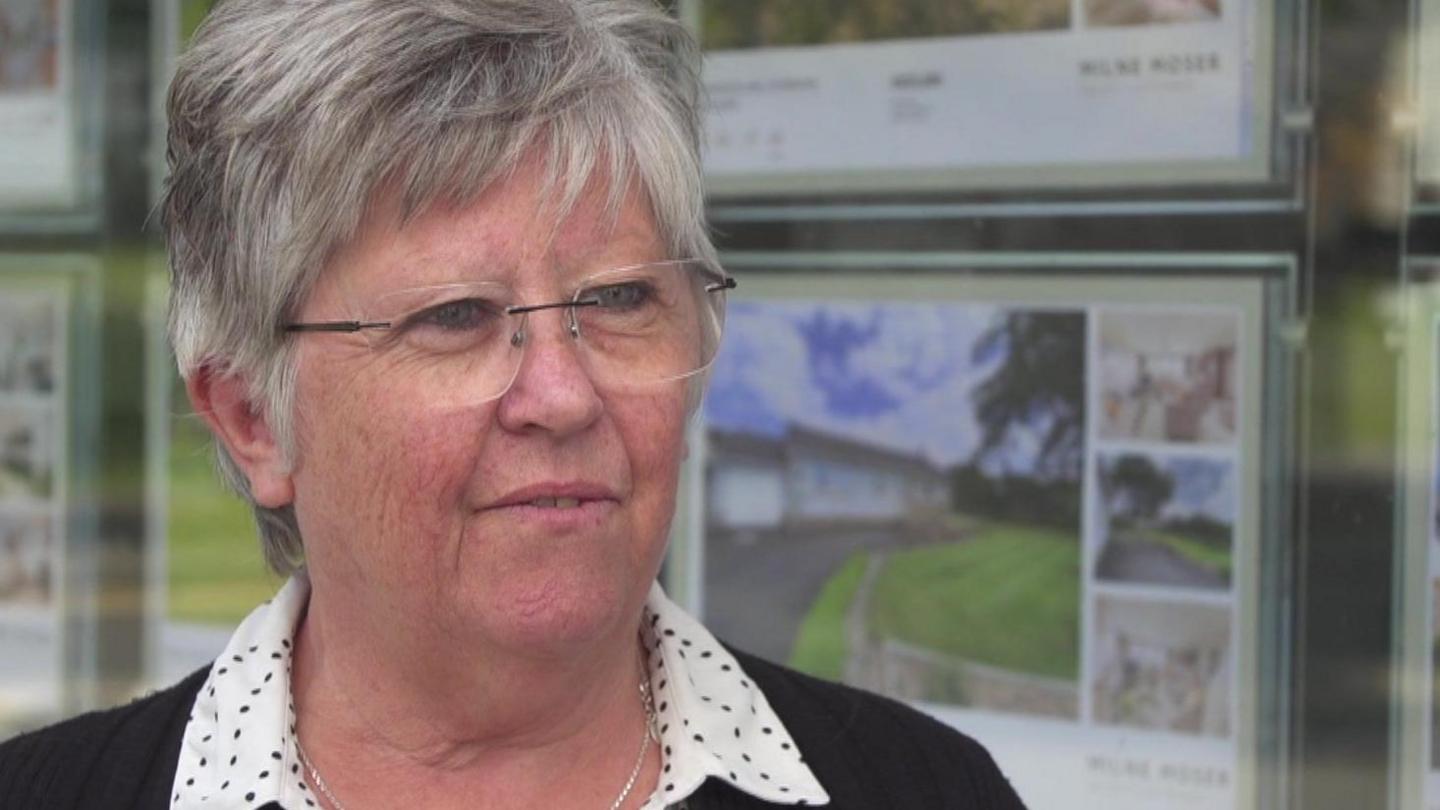
Conservative Jill Davis said she would not be changing sides in July's general election
"He often pops in, we often see him around the market square," said Jill Davis, a legal assistant at Milne Moser estate agents in the town centre.
"People round here are very set in their ways.
"But now the constituency has changed, I think we might see a change.
"A lot of younger people are coming in, and I think they will maybe change it when they come to vote."
Her vote will not be changing, she said.
"Even though it's a Lib Dem area, we've always voted Conservative. And I'll be voting Conservative again," said Ms Davis.
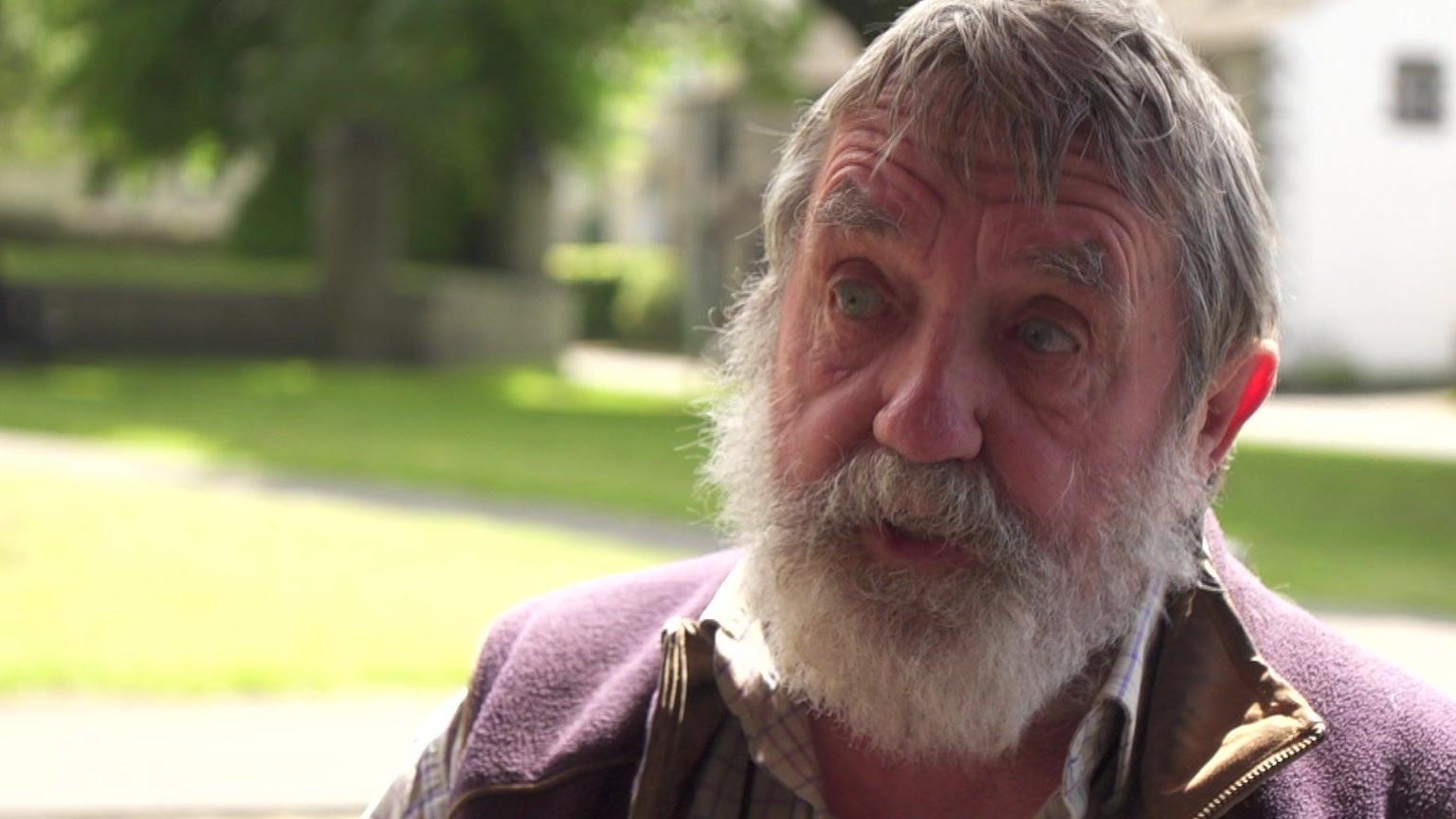
Rod Stott describes himself as an "enthusiastic" Labour supporter
Meanwhile another resident said he hoped for a Labour victory.
Rod Stott proudly showed us a photo of him meeting Labour's deputy leader Angela Rayner when the party's battle bus rolled into Morecambe earlier this week.
"We've had 14 years of terrible government," he said. "I have four children and 11 grandchildren, and I want a future for all of them.
"And I don't see a future for them if we carry on the way we are."
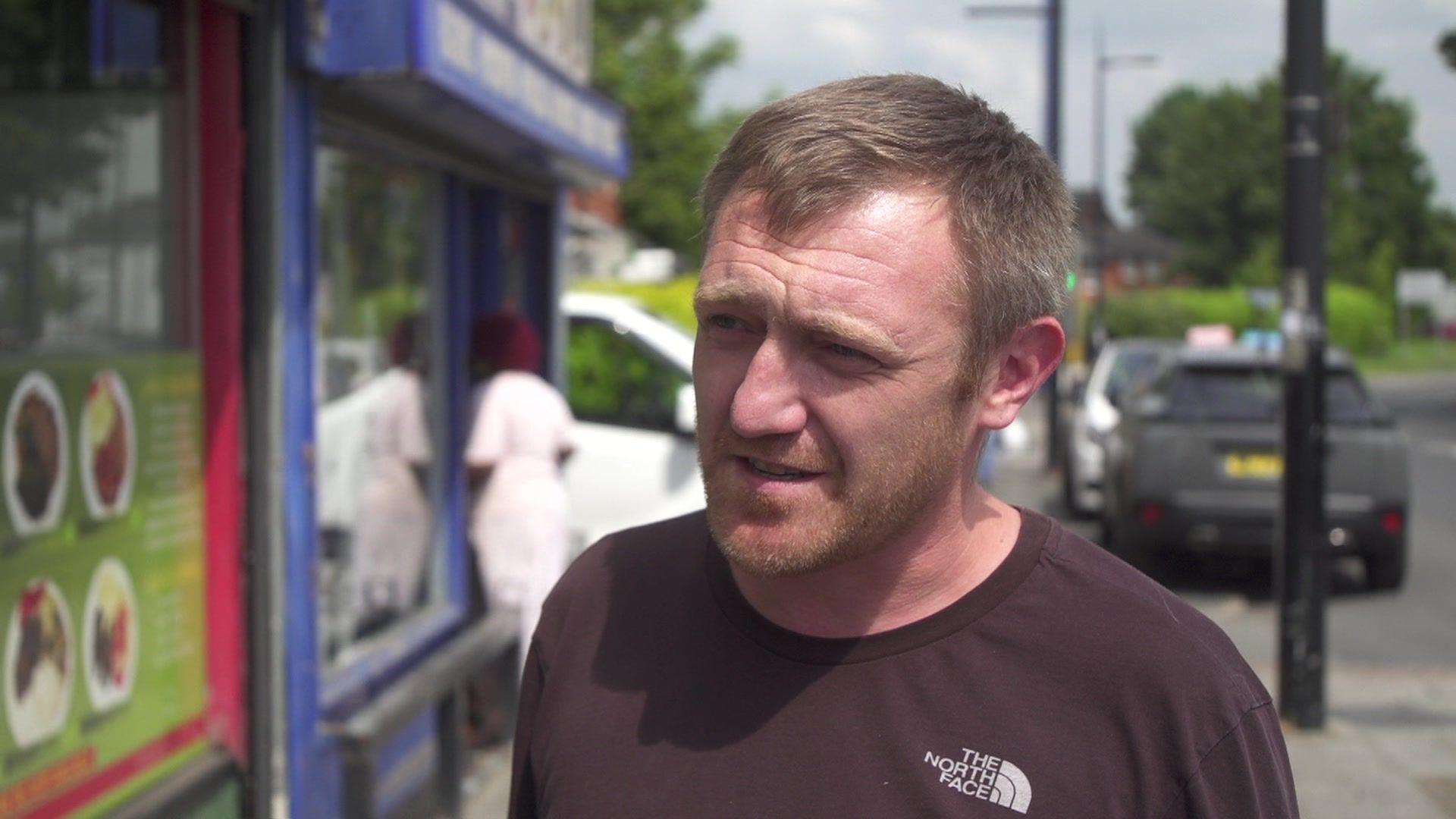
Mark Taylor says housing and homelessness are important issues to him
On a good day, Blackley and Broughton in northern Greater Manchester is only about an hour's drive away down the M61.
People there seem far less bothered about politics - only 52% of eligible voters cast their vote in the last general election five years ago.
Boundary changes are also happening there - with the traditionally staunch Labour heartland constituency changing its name to Blackley and Middleton South.
Graham Stringer has been the area's MP for more than a quarter of a century, going back to 1997 when his boss Tony Blair swept to power in a Labour landslide.
In the Harpurhey area, several people told us they did not see the point of voting, because none of the parties adequately represented their views.
"I stay away from it," said army veteran Mark Taylor, who now works as a gas engineer.
"I see politics in the news a lot, but they make promises and never stick to them."
While party politics turns him off, he said he was still very concerned about political issues.
Housing and homelessness are some of the most important topics for him.
"When you walk past people homeless it makes me sad, and it makes my child feel sad.
"He asks questions but I can't give him the answers."
Mark said were politicians to visit his area, "coming and seeing the people from the streets, where they are living, and how they are living" he could be persuaded to lend them his vote.
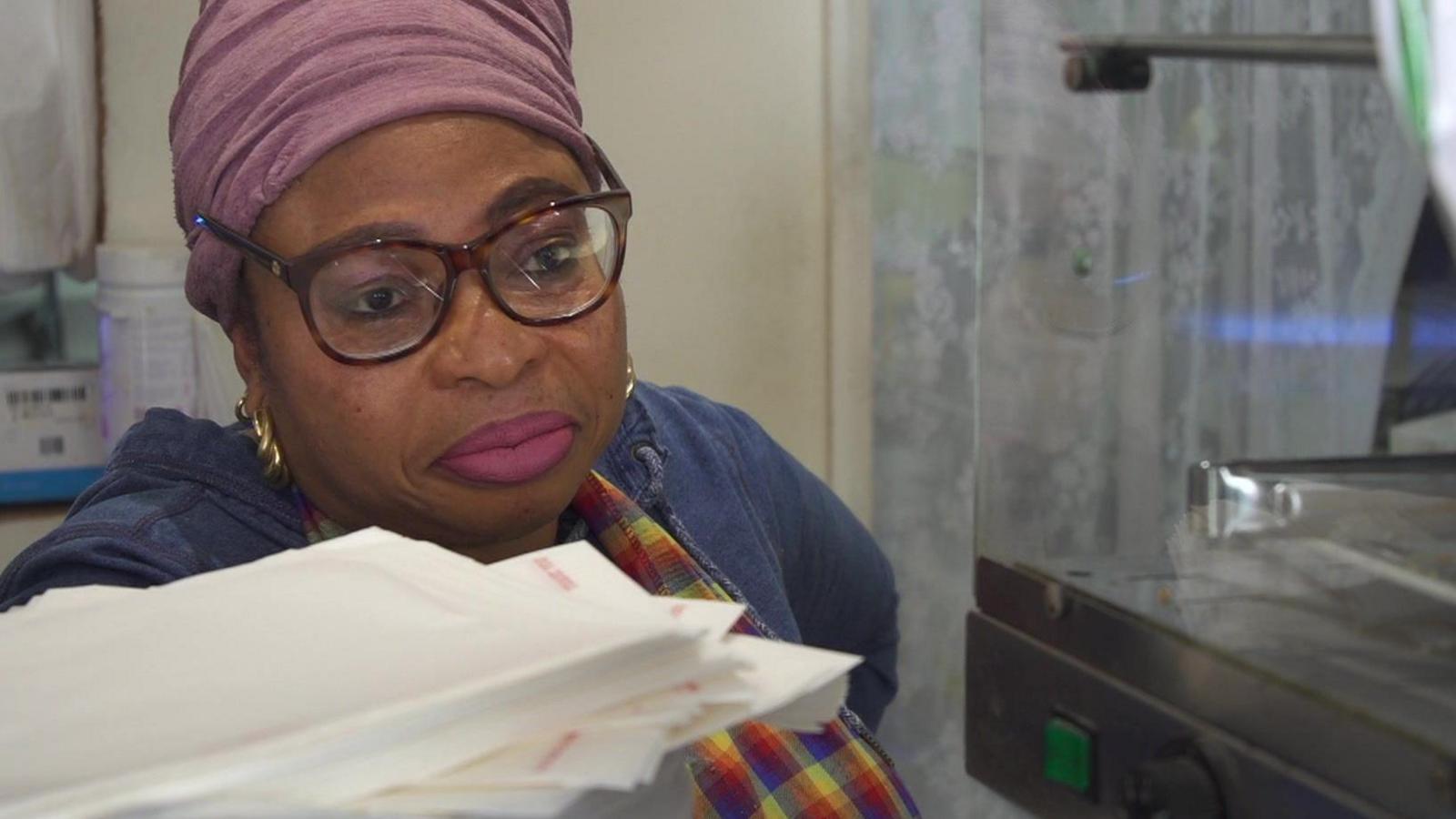
Harpurhey cafe owner Endurance Obabueki
Endurance Obabueki, who runs a cafe on Moston Lane, also said politicians were rarely if ever spotted locally.
"I would like them to come here, of course - to hear the opinion of each and every one of us," she said.
"Then maybe they would know where they are not doing good, and make improvements."
Related topics
More like this
- Published5 June 2024
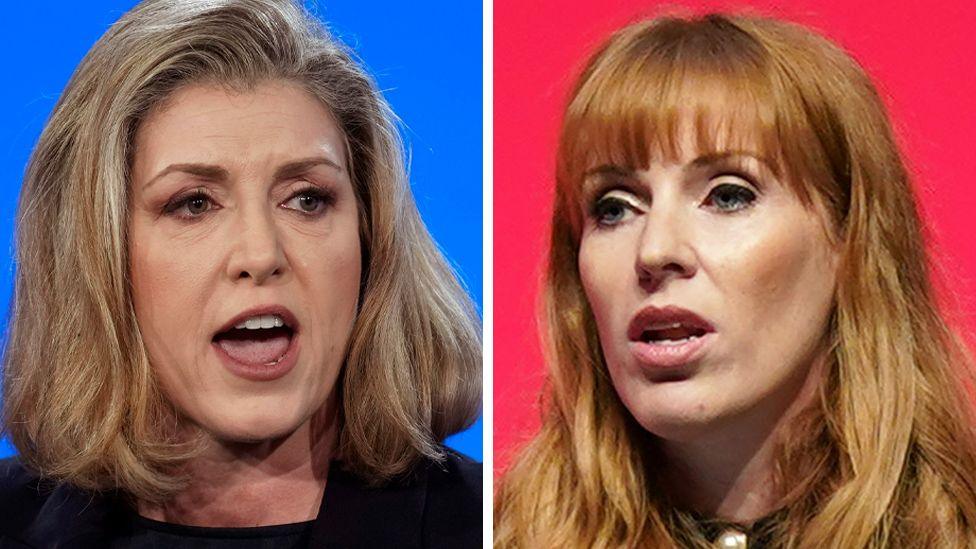
- Published3 July 2024

- Published3 June 2024

- Attribution
- Published9 July 2024
